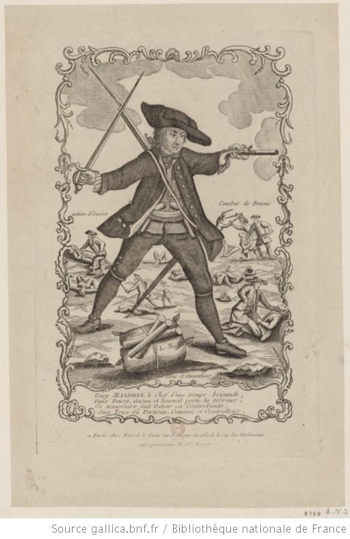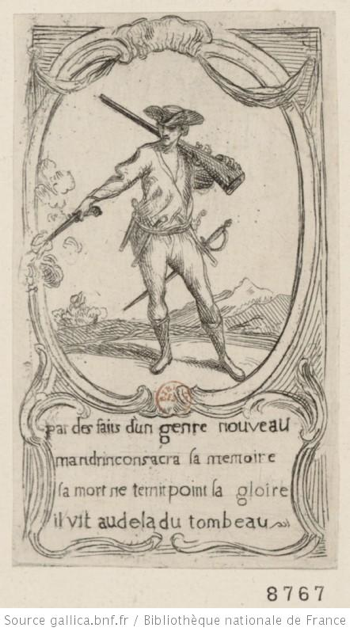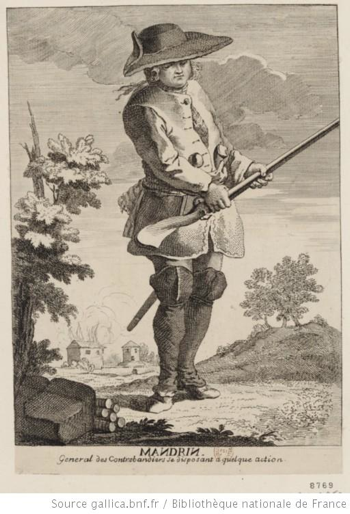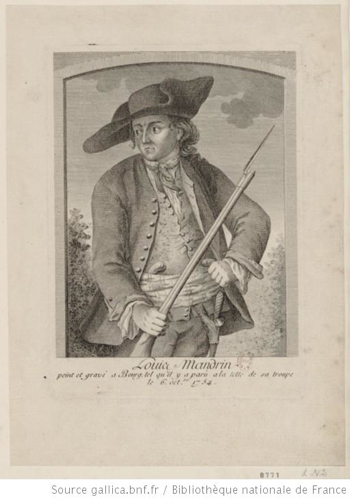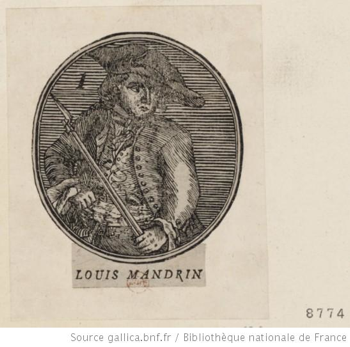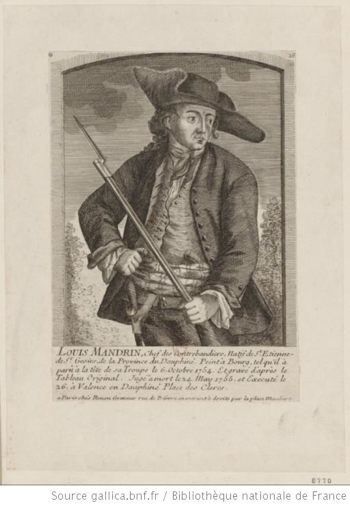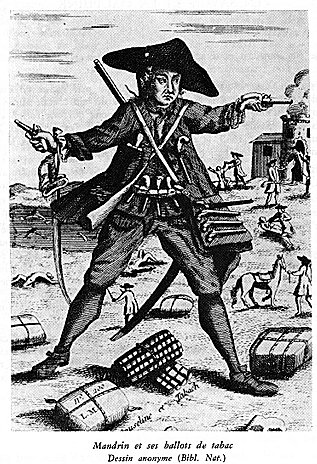
Images of Liberty and Power
[Date: 1 Feb. 2021]
See other images in the collection.
The Anti-Tax Smuggler Louis Mandrin (1725-1755) - the 18thC French Robin Hood
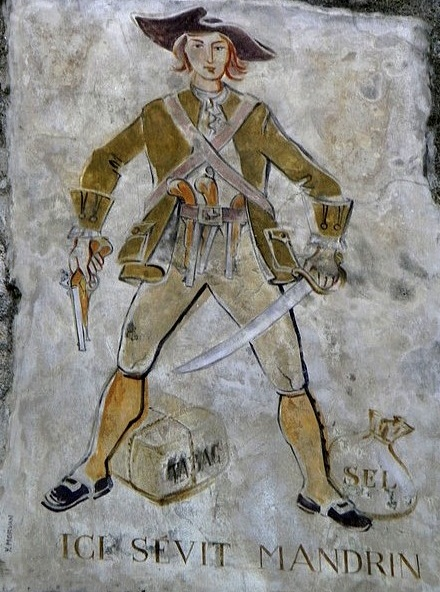
Louis Mandrin (1725-55) was a famous 18th century French brigand and highwayman who challenged the privileges of the Farm General (la Ferme générale - or "Tax Farmers") by smuggling goods which were the monopoly of the Farm General across the French border .
The Farm General was reorganized in 1726 to include a group of 40 (later 90) politically well connected individuals (the Farmers General - "les Fermiers généraux) who were given exclusive contracts by the king (via the Minister of Finance who received his cut in the form of bribes, or "pots-de-vin") to sell and thereby collect taxes on such items as salt, tobacco products, wine, and to enforce compulsory work on public goods such as roads (the octrois). This was an early version of "contracting out" or "privatizing" the collection of customs and taxes and was much hated by ordinary people in the 18th century. When the Farmers General were abolished in 1971 28 of the members were arrested and executed, including the mathematician Antoine Lavoisier.
Mandrin was under contract with the Farm General to supply mules to the French army but when most of the died in transit the Farm General refused to pay him. After several run ins with the law resulting in Mandrin being condemned to death in 1753 and after his younger brother was executed for counterfeiting, Mandrin "declared war" on the Farmers General and began smuggling untaxed goods across the Swiss border and selling them in France. He became a popular hero for resisting the tax collecting Farmers General, which he did for the following 2 years before he was finally arrested and executed.
Mandrin became a folk hero about whom popular songs were written and in the 20th century even films and a TV show were made about his exploits. A local Grenoble dark beer was also named after him in 2002.

Here are some images of him from the Bibliothèque nationale and some further reading:
- Begin with the Wikipedia article (in English) <http://en.wikipedia.org/wiki/Louis_Mandrin> and then the French one <http://fr.wikipedia.org/wiki/Louis_Mandrin>.
- There is a Mandrin website (in French) with lots of resources <http://www.mandrin.org/>.
- A film of the exploits of his followers after his execution will be appearing in early 2012 - Les Chants de Mandrin (2011), "The Ballads of Mandrin". The webiste with a trailer is here <http://www.mandrin.org/les-chants-de-mandrin.html>.

This is my favorite depiction of Mandrin. He is telling the Tax Farmer (who is showing him his official papers from the King) where to go. The goods he is "liberating" from the tax farmer so he call sell them tax free to the people are scattered on the ground.
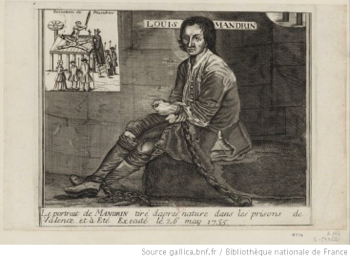
This is the saddest one with Mandrin chained in prison waiting to be beaten of the rack and slowly killed by the French Army.
Here are a selection of other depictions of him:
